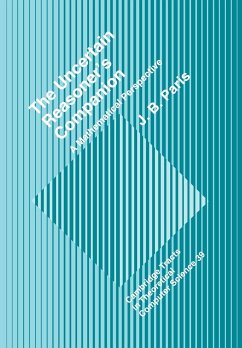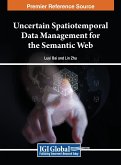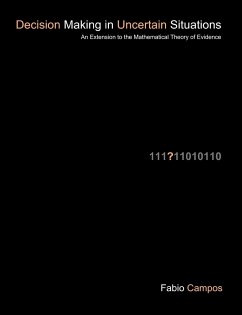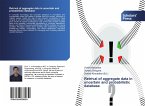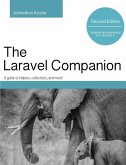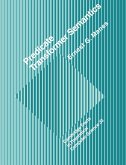This is an introduction to the mathematical foundations of uncertain reasoning.
Reasoning under uncertainty, that is, making judgements with only partial knowledge, is a major theme in artificial intelligence. Professor Paris provides here an introduction to the mathematical foundations of the subject. It is suited for readers with some knowledge of undergraduate mathematics but is otherwise self-contained, collecting together the key results on the subject and formalizing within a unified framework the main contemporary approaches and assumptions. The author has concentrated on giving clear mathematical formulations, analyses, justifications and consequences of the main theories about uncertain reasoning, so the book can serve as a textbook for beginners or as a starting point for further basic research into the subject. It will be welcomed by graduate students and research workers in logic, philosophy and computer science as an account of how mathematics and artificial intelligence can complement and enrich each other.
Review quote:
"Those who value economic history's concern to establish what really happened will welcome the direction of attention to a problem of such contemporary interest as the multinational enterprise."
Business History
"The majority of the papers are historical studies of particular enterprises or areas between the 1860s and the Second World War...The collection will provide matter of interest to others besides economic historians."
Economic History Review
"This work is an outstanding mathematical treatment of uncertainty in knowledge-based systems. It provides, in a uunified manner, the needed fundamentals for theoretical approaches."
L. State, Computing Reviews
Table of contents:
Introduction; 1. Motivation; 2. Belief as probability; 3. Justifying belief as probability; 4. Dempster-Shafer belief; 5. Truth-functional belief; 6. Inference processes; 7. Principles of uncertain reasoning; 8. Belief revision; 9. Independence; 10. Computational feasibility; 11. Uncertain reasoning in the predicate calculus; 12. Principles of predicate uncertain reasoning; Glossary; Bibliography; Index.
Hinweis: Dieser Artikel kann nur an eine deutsche Lieferadresse ausgeliefert werden.
Reasoning under uncertainty, that is, making judgements with only partial knowledge, is a major theme in artificial intelligence. Professor Paris provides here an introduction to the mathematical foundations of the subject. It is suited for readers with some knowledge of undergraduate mathematics but is otherwise self-contained, collecting together the key results on the subject and formalizing within a unified framework the main contemporary approaches and assumptions. The author has concentrated on giving clear mathematical formulations, analyses, justifications and consequences of the main theories about uncertain reasoning, so the book can serve as a textbook for beginners or as a starting point for further basic research into the subject. It will be welcomed by graduate students and research workers in logic, philosophy and computer science as an account of how mathematics and artificial intelligence can complement and enrich each other.
Review quote:
"Those who value economic history's concern to establish what really happened will welcome the direction of attention to a problem of such contemporary interest as the multinational enterprise."
Business History
"The majority of the papers are historical studies of particular enterprises or areas between the 1860s and the Second World War...The collection will provide matter of interest to others besides economic historians."
Economic History Review
"This work is an outstanding mathematical treatment of uncertainty in knowledge-based systems. It provides, in a uunified manner, the needed fundamentals for theoretical approaches."
L. State, Computing Reviews
Table of contents:
Introduction; 1. Motivation; 2. Belief as probability; 3. Justifying belief as probability; 4. Dempster-Shafer belief; 5. Truth-functional belief; 6. Inference processes; 7. Principles of uncertain reasoning; 8. Belief revision; 9. Independence; 10. Computational feasibility; 11. Uncertain reasoning in the predicate calculus; 12. Principles of predicate uncertain reasoning; Glossary; Bibliography; Index.
Hinweis: Dieser Artikel kann nur an eine deutsche Lieferadresse ausgeliefert werden.

